Covid: Some foreign travel opening up on 17 May - Boris Johnson
- Published
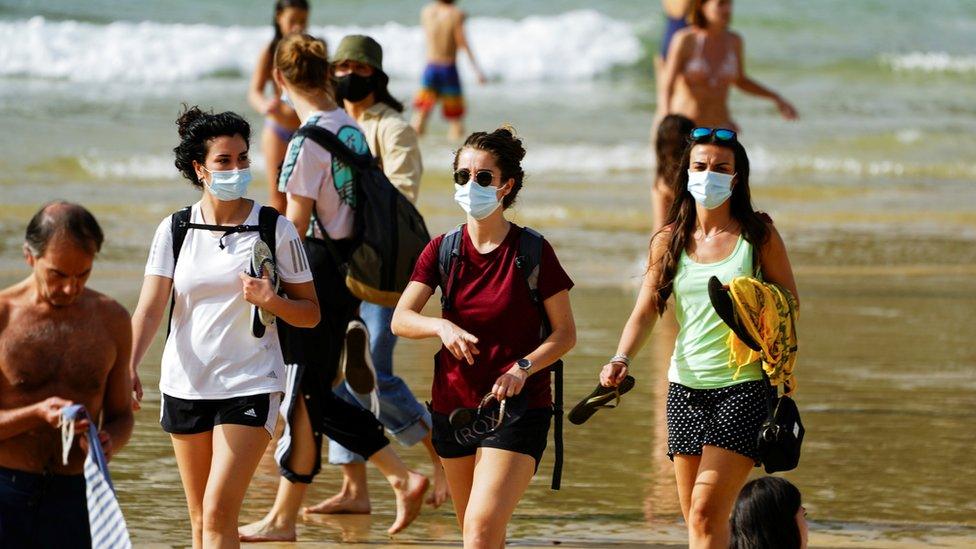
People enjoy La Concha beach in San Sebastián, northern Spain, last month
Prime Minister Boris Johnson has indicated there will be some "opening up" of foreign travel on 17 May - but said it was important to be cautious.
More details are expected this week to confirm when and how international travel will restart in England.
Speaking on Monday, the PM said "we'll be saying more as soon as we can" but "we have got to be very, very tough".
He also said there was a "good chance" of the one-metre plus social distancing rule being scrapped on 21 June.
He stressed any decision on changing the rules was dependent on the data.
On Monday, Public Health England reported 1,649 new cases alongside a single death within 28 days of a positive test across the UK.
The recorded number of daily deaths is often lower at weekends and on bank holidays due to delays in reporting.
Fifty million doses of coronavirus vaccine had now been administered across the UK, Health Secretary Matt Hancock confirmed.
Mr Johnson was speaking after a group of MPs called on the government to keep travel rules in place beyond mid-May.
The all-party parliamentary group on coronavirus said, external arrival halls in airports risked becoming a "breeding ground" for the virus.
The group of more than 60 MPs and peers said the government should discourage people from travelling abroad unless it was essential.
Foreign holidays are currently banned, but a traffic light system of rules is going to be introduced with countries classed as green, amber or red.
Travellers to green countries will not need to isolate on their return, but they will need to take a Covid test.
Arrivals from amber countries will need to quarantine, while red-list countries have the strictest rules, with only UK or Irish nationals allowed to return and they must pay to stay in a government quarantine hotel.
Further details are expected this week, after the government said it will "set out by early May" how countries will be categorised.
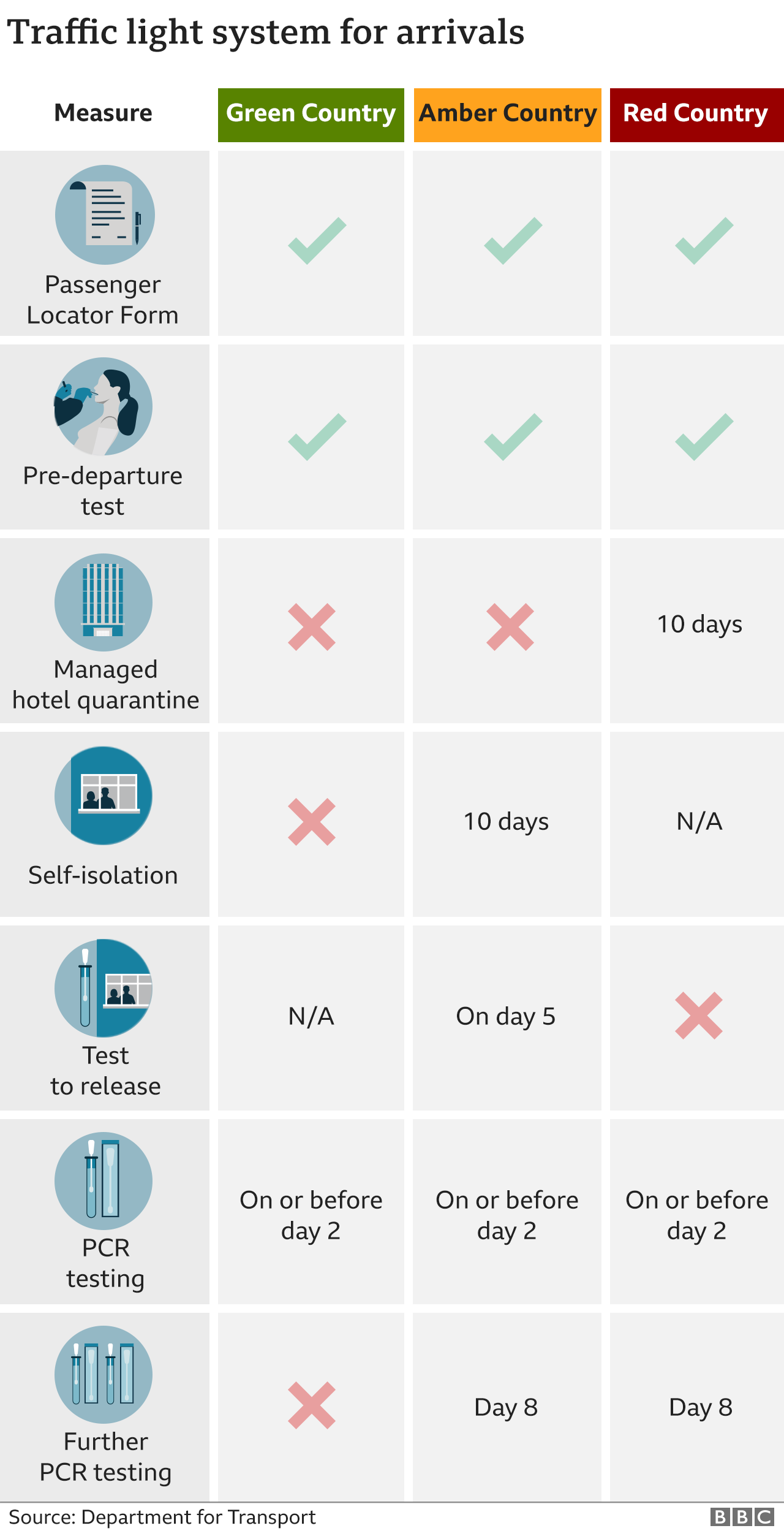
Mr Johnson was asked about holidays during a visit to Hartlepool, Teesside, and said experts were currently assessing which countries were safe.
"But I do think that it's important to be cautious in this," he said.
"We do want to do some opening up on 17 May but I don't think the people of this country want to see an influx of disease from anywhere else.
"I certainly don't and we have got to be very, very tough and have got to be as cautious as we can whilst we continue to open up."
Asked whether people should be planning their summer holidays, Mr Johnson said: "We'll be saying more as soon as we can.
"I think that there will be some openings up on the 17th but we have got to be cautious, we have got to be sensible, we have got to make sure we don't see the virus coming back in."
He added that "we have got a good chance of being able to dispense with the one-metre plus from 21 June" - but it was dependant on the data.
Europe's plan
Many in the travel industry are hopeful for holidays this summer, while countries such as Spain, France, Greece, external, Portugal and Cyprus are preparing to open to tourists.
The European Commission has also recommended opening up to travellers who have received both doses of the vaccine.
The boss of Thomas Cook earlier told the BBC he expected many popular destinations, particularly in Europe, to be open to UK holidaymakers this summer as they were making "great progress".
"When the holidays proper start at the end of June, we are expecting most of the countries that the UK goes on holiday to - Europe particularly - to be open," said Alan French.
"We are expecting Portugal, Spain, Greece, Croatia and so forth to be open; it would be nice if Turkey was open."
Mr French also said his company had noticed many people were booking holidays as larger groups since they had not seen their families and friends in such a long time.
EU plans for a 'vaccine passport' to allow travel
The first ministers of Scotland and Wales have previously argued that 17 May would be too early for foreign holidays to resume, and no date has yet been set for rules to be relaxed. Northern Ireland's executive has not said anything about when it expects to make an announcement.
But a representative from the travel industry in Scotland has said any plan needs to be agreed between the four nations.
"There's no way it's going to work [with] Scotland operating a different system to England when you can freely travel across the border and fly out of an English airport - and that's exactly what will happen," said Alan Glen, from the Scottish Passenger Agents Association.
Labour leader Sir Keir Starmer said he will "wait and see" what the government announces, but said: "We need to be very careful."
"What we can't have is a repeat of last summer, where the lists were chopping and changing on a daily or even weekly basis," he said.
According to the all-party group of MPs who want the government to slow down with the reopening of foreign travel, airports should be made safer to make sure arrival halls have enough space for social distancing and to separate travellers coming from higher-risk countries.
Liberal Democrat MP Layla Moran, who chairs the group of MPs , said "the model we have right now has too many holes [and] is too risky".
"It is staggering that the government is even contemplating encouraging overseas holidays when airports are already struggling to keep the virus and new variants at bay," she said.
The group also wants stricter checks on Covid test certificates, after the trade union representing border staff said officials spot around 100 fake Covid test certificates a day.
Chris Gentile said his coach company is one of many choosing to delay foreign trips
A government spokesperson said the traffic light system would allow the UK to manage the risk from different countries.
"We introduced robust border controls to stop coronavirus variants in their tracks and every essential check we've introduced for arrivals has strengthened our defences against new mutations."
The next stage of England's lockdown easing is expected in a fortnight, on 17 May. As well as the possibility of international travel, people will be able to meet in groups of up to 30 outdoors, while six people or two households can meet indoors.

LOOK-UP TOOL: How many cases in your area?
YOUR QUESTIONS: We answer your queries
GLOBAL SPREAD: How many worldwide cases are there?
THE R NUMBER: What it means and why it matters
VACCINE: When will I get the jab?



- Published26 July 2021
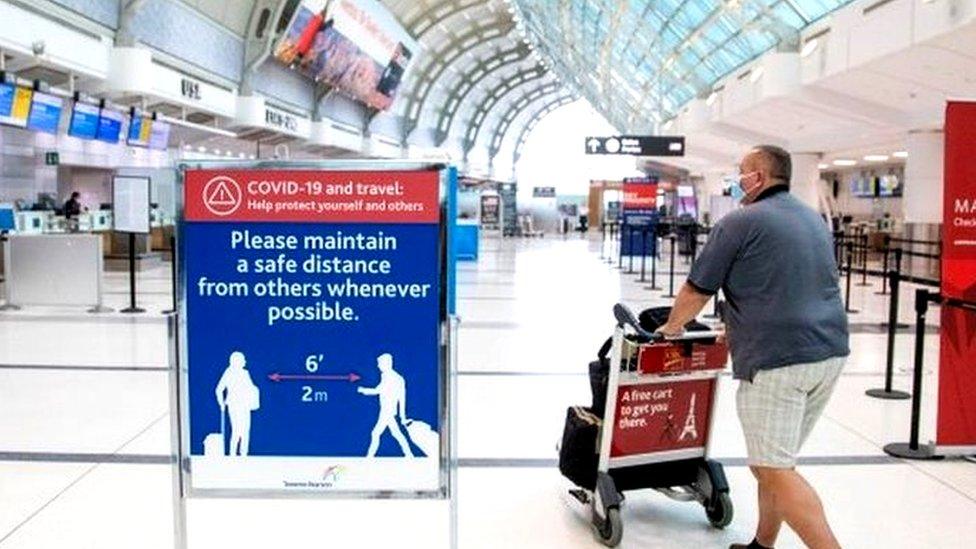
- Published11 February 2022

- Published1 July 2022

- Published3 May 2021
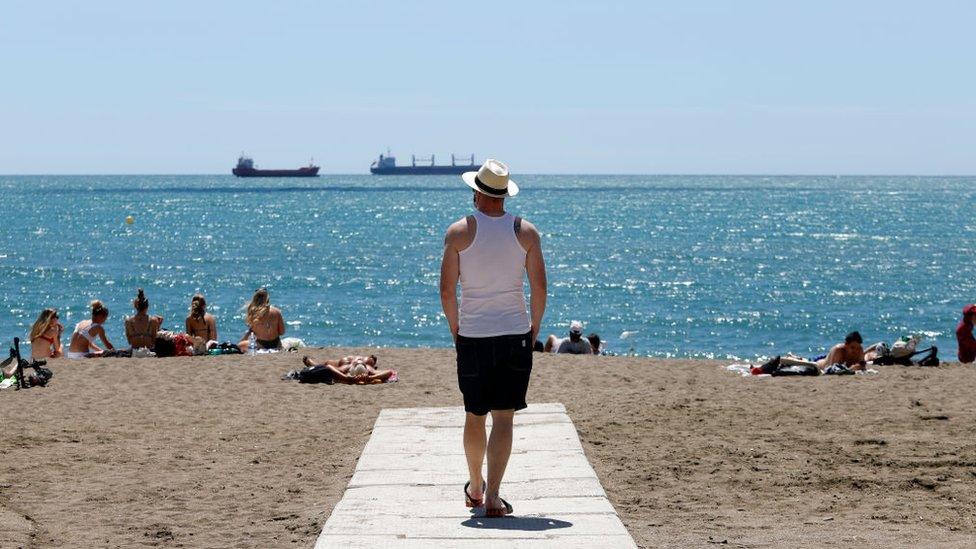
- Published21 April 2021
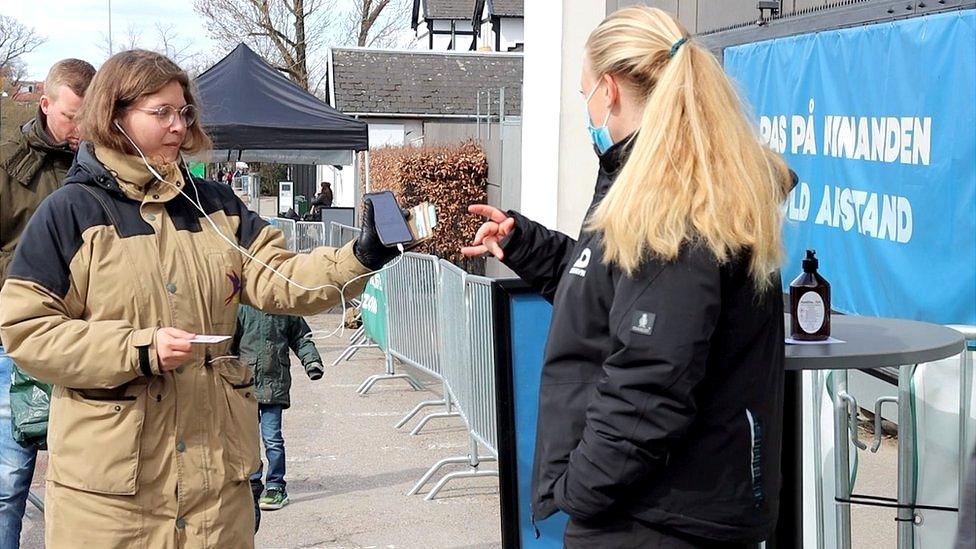
- Published5 July 2022
